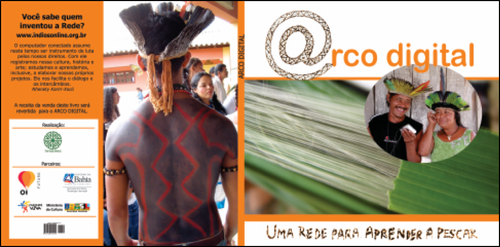Guest blog by Thea Pitman

In this guest blog Thea Pitman, University of Leeds, explores how modern languages research enhances our understanding of digital culture.
The contribution of Modern Linguists is crucial in the fast growing field of research into digital cultures, and more specifically internet studies. This is quite simply because the internet started off as an Anglophone communications network in the USA, and, as a consequence, the early research conducted in the field, even once it had become a global network, focused on the internet as an Anglophone phenomenon, both linguistically and culturally. The websites on which early research was based were in the English language and the new set of metaphors that had come about to conceive of the way we relate to the internet were based on an Anglophone, ‘first world’ positionality presuming leisure time and the ability to colonise places at will (new expressions such as ‘surfing the web’ and ‘homesteading on the electronic frontier’ [cf. Rheingold, 1993], are most telling here).
It is quite clear that the internet is no longer a uniquely English-language medium and early fears that the “semiotic and aesthetic limits” of Spanish – or other widely-spoken world languages – would not withstand the “expansion of communications subordinated to commercial criteria” (García Canclini, 1999) or that Spanish, for example, was destined to be “a language studied and learnt on the web, but not a language of the web […] a technological object, not a tool of the internet” with Spanish speakers “remain[ing] passive/receptive users, rather than creative/productive agents” (Gabilondo, 2006), have proven unfounded.
And as the languages of the internet have diversified exponentially, research has started to be conducted about the nature of internet cultures in those other languages (see, for example, Internationalizing Internet Studies [Goggin and McLelland, 2009]) which is where Modern Linguists have a significant role to play in exploring both the linguistic and cultural nuances of these different positionings. There is still much more to do, however, to keep apace with the multilingual expansion of the internet and the cultures it supports/creates, and also to ensure that the debates about the nature of the internet and its cultures are not shot through with Anglophone bias despite their purported universalist nature.
In my view, it is also important to explore the extent to which the metalanguage for describing the internet has been transferred in kind from English to other languages, thus reproducing the particular positionality of hegemonic subjects. And if this is the case, as I would argue it is in languages such as Spanish and Portuguese where much internet terminology revolves around the verb ‘navegar’, to navigate, which will always echo with the arrival of the first conquistadors on the shores of what is today Latin America, we must ask ourselves if there are other ways of appropriating the internet, from ‘subaltern’ subject positions, that are not redolent of a rerun of the Conquest without the inconvenience of there being anyone in the way (Sardar [1996]).
In my own research, I have been particularly interested in the way that indigenous communities in Latin America have sought to appropriate digital technologies and the way in which the terms that they couch for this appropriation reveal a very different approach to the leisure- and conquest-based terms used in English or in mainstream Spanish/Portuguese. On the Brazilian portal Índios Online and related projects such as the online educational network Arco Digital (all supported by the NGO Thydêwá) there is a determination to ‘indigenise’ the internet by filtering concepts and practices relating to the internet through the lens of a ‘recognisable’, ‘traditional’ indigeneity such that a computer connected to the internet may be reframed as an ‘arco digital’, a digital bow (with attendant arrow), and indigenous internet users become ‘guerreiros/as digitais’ or digital warriors. This ‘hunter-warrior’ discourse is evident in both visual and textual materials on the website and is strategically essentialist in nature as the group seek to make themselves easily recognisable online to the outside world.
However, digital bows and arrows are not the only way of ‘indigenising’ the internet. Frequently critics have noted the fact that digital culture has grown out of the practice of weaving – the Jacquard loom is the origin of binary code – and have thus suggested that a multimodal discourse of weaving will prevail in indigenous appropriations of the internet, and even that indigenous people are the original cyborgs, based on an appropriation of Donna Haraway’s theorisation in ‘A Cyborg Manifesto’ (1984) where oppositional cyborgs are more inclined to ‘(net)weave’ rather than ‘network’). It is certainly the case that, although perhaps not as common as the ‘hunter-warrior’ approach outlined above, some communities, such as the Nasa of Southwestern Colombia, do adopt a discourse of weaving in relation to their online activities – see the Asociación de Cabildos Indígenas del Norte del Cauca website.
 These different approaches are not absolutely
mutually exclusive. The book @rco digital (2007), that summarises the achievements of the online
educational network mentioned above, has as its subtitle: ‘Uma rede para
aprender a pescar’ [A net for learning how to fish], thus combining the ‘hunter-warrior’
discourse of the fishing net which is used for obtaining food, with a ‘weaving’
discourse born of the fact that the same fishing net is of course a form of
textile (and there’s even a further echo of that other webbed textile much
associated with indigenous lifeways in Brazil which is the hammock).
Furthermore, on the back cover of the book, the lead author, Nhenety
Kariri-Xocó, asks provocatively: ‘Você sabe quem inventou a Rede?’ [Do you know
who invented the (inter)net?]. He thus contrives to frame his reference to ‘the
net’ in such a way as to challenge the colonialist rhetoric implicit in
dominant approaches to the internet, reimagining indigenous people as first-come
in cyberspace and disturbing the fantasies of hegemonic internet-users where
they get to be both cyber-conquistador and digital native.
These different approaches are not absolutely
mutually exclusive. The book @rco digital (2007), that summarises the achievements of the online
educational network mentioned above, has as its subtitle: ‘Uma rede para
aprender a pescar’ [A net for learning how to fish], thus combining the ‘hunter-warrior’
discourse of the fishing net which is used for obtaining food, with a ‘weaving’
discourse born of the fact that the same fishing net is of course a form of
textile (and there’s even a further echo of that other webbed textile much
associated with indigenous lifeways in Brazil which is the hammock).
Furthermore, on the back cover of the book, the lead author, Nhenety
Kariri-Xocó, asks provocatively: ‘Você sabe quem inventou a Rede?’ [Do you know
who invented the (inter)net?]. He thus contrives to frame his reference to ‘the
net’ in such a way as to challenge the colonialist rhetoric implicit in
dominant approaches to the internet, reimagining indigenous people as first-come
in cyberspace and disturbing the fantasies of hegemonic internet-users where
they get to be both cyber-conquistador and digital native.
Arguably, this kind of ‘close reading’ of a particular ‘internet culture’, dependent as it is on both linguistic and cultural elements that are the bread and butter of research in Modern Languages, is where we can make a decisive contribution to internet studies. Without our input, internet studies, or digital culture studies more broadly, runs the risk of pedalling arguments about which internet-users might qualify as ‘digital natives’ or as ‘digital immigrants’ (Prensky, 2001) without ever realising the assumptions that are being made in the adoption of such terminology.